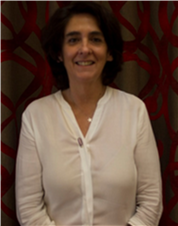 Today, water pollution represents a very big problem for our health and future generations. There are a few people who have recognized the problem and have taken steps to solve it. Young Reporters for the Environment had the opportunity to hear from Paula Sobral from the MARLISCO Project, a European project founded in June 2012 that aims to raise social awareness about the impacts of marine litter and possible solutions to the problem.
Today, water pollution represents a very big problem for our health and future generations. There are a few people who have recognized the problem and have taken steps to solve it. Young Reporters for the Environment had the opportunity to hear from Paula Sobral from the MARLISCO Project, a European project founded in June 2012 that aims to raise social awareness about the impacts of marine litter and possible solutions to the problem.
As Sobral explains, marine litter is a catastrophic problem. Not only does such litter affect the appearance of our waters, but it also poses a huge risk to beach users and tourists, and can severely damage the economy. “But important to remember though is that marine litter not only hurts people, but also animals,” says Sobral.
Sobral pointed out that of the litter that ends up in the sea, 75% is plastic. Surprisingly, most of the plastic that ends up on land is no bigger than a bottle cap. Most of the plastic comes from everyday personal care products and housecleaning products. Degradation is very slow, which means the plastic can stay in the environment for very long periods. Many countries are developing new ways to manage the waste, but there is still a lot that we can do.
Young Reporters for the Environment had the opportunity to speak about MARLISCO in even greater detail.
YRE: How many countries are involved with MARLISCO?
Sobral: There are 15 countries currently working on the project, but of course, the more support we can get, the better.
YRE: Did you have any difficulties when starting the project?
Sobral: It’s always a challenge to start a project of this size, but I was fortunate to be able to work with highly dedicated, hard-working professionals, which really helped get the project off the ground.
YRE: What inspired you to start the project?
Sobral: The story behind my inspiration is rather unusual. I stumbled upon a cartoon in which a family of seahorses were told “You can’t have your nurdles (a type of plastic litter) until you finish your seaweed.” I thought the cartoon did a great job at demonstrating just how big of a problem marine litter is. This got me motivated to start looking for solutions.
YRE: What are some ways that communities can tackle the problem of marine litter?
Sobral: There’s a lot, and some of the solutions are really creative. For example, some organizations have been able to transform PET bottles into jeans. There are also a few groups out there dedicated to going out to the seas themselves and “fishing” out marine litter.
YRE: Thank you so much for your time and giving us the opportunity to learn about the great work of your organization. Do you have any final thoughts for our readers?
Sobral: It’s been a pleasure. I encourage you to get involved with the work we do. One of the greatest challenges we face is that we have no volunteers. The problem is clear to see, and we could use all the help we get.
The plan is to make the oceans waste-free, and with your help, we’re confident that we can accomplish our goals.
Group 2: Christoph Barg, Lea Eggers, Tatyana Gubanova, Gaganbir Dhugga, Alan Binlayo, Anastasija Bojkovska, Sara Cascais.



You must be logged in to post a comment.